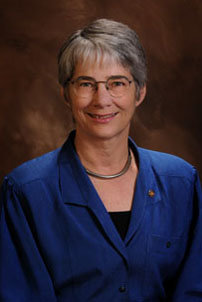Kansas Senate committee votes to repeal renewable energy standards
Topeka ? Despite pleas from a growing wind energy industry in Kansas, a Senate committee Thursday voted to repeal the state renewable energy standards.
State Sen. Rob Olson, R-Olathe, blamed the standards for increased electric costs and said it was an ill-advised government mandate that gave wind energy an advantage.
It would have been like mandating “20 percent of the people to keep a Blackberry,” he said.
State Sen. Forrest Knox, R-Altoona, also voted for repeal, saying, “Let’s let business do its thing.”
Renewable energy advocates said repeal of the standards would hurt Kansas’ ability to recruit industries that say an RPS helps provide a reliable and equitably priced energy source.

State Sen. Marci Francisco
“I’d hate for us to lose our spot on that map,” of states with renewable energy goals, said state Sen. Marci Francisco, D-Lawrence.
The bill would repeal the 2009 Renewable Portfolio Standard, or RPS, that required major utility companies to have the capacity to generate 10 percent of their energy through a renewable source by 2011. It also called for the companies to generate 15 percent of their energy through a renewable source by 2016 and 20 percent by 2020. Utilities have said they are on track to meet the standard.
Wind energy advocates said the RPS helped spur development of wind-related industries that have produced thousands of jobs and billions of dollars in capital investment across the state.
And they pointed to state studies that showed the RPS had almost no impact on electric rate increases.
“Passing this (repeal) would not reduce the cost of any residential customers’ utility bill,” Francisco said.
The bill was approved by the Senate Utilities Committee on a voice vote. Only Francisco and state Sen. Tom Hawk, D-Manhattan, asked to be recorded as ‘no’ votes.
Francisco also opposed a move by Committee Chairman Pat Apple, R-Louisburg, to place the Senate bill in an already approved House bill and gut the contents of the House bill. That means if the Senate approves the repeal, the House could approve the bill without having a public hearing on the measure. The committee approved the maneuver over Francisco’s protests.
Repeal efforts are being led by House and Senate leaders, backed by the Kansas Chamber, Americans for Prosperity, and American Legislative Exchange Council. However, Gov. Sam Brownback, who is closely aligned with the legislative leaders and these groups, has spoken in favor of wind energy.
The RPS was the result of a controversial deal brokered in 2009 by then-Gov. Mark Parkinson.
In return for passage of the RPS, Parkinson vowed to help clear the way for Sunflower Electric Power Corp. to build an 895-megawatt, coal-fired plant in western Kansas.
Sunflower got its permit from the Kansas Department of Health and Environment, but that plant has not been built, and its future is in doubt.
Olson said if the RPS had been put to a vote back then by itself it wouldn’t have been approved.






